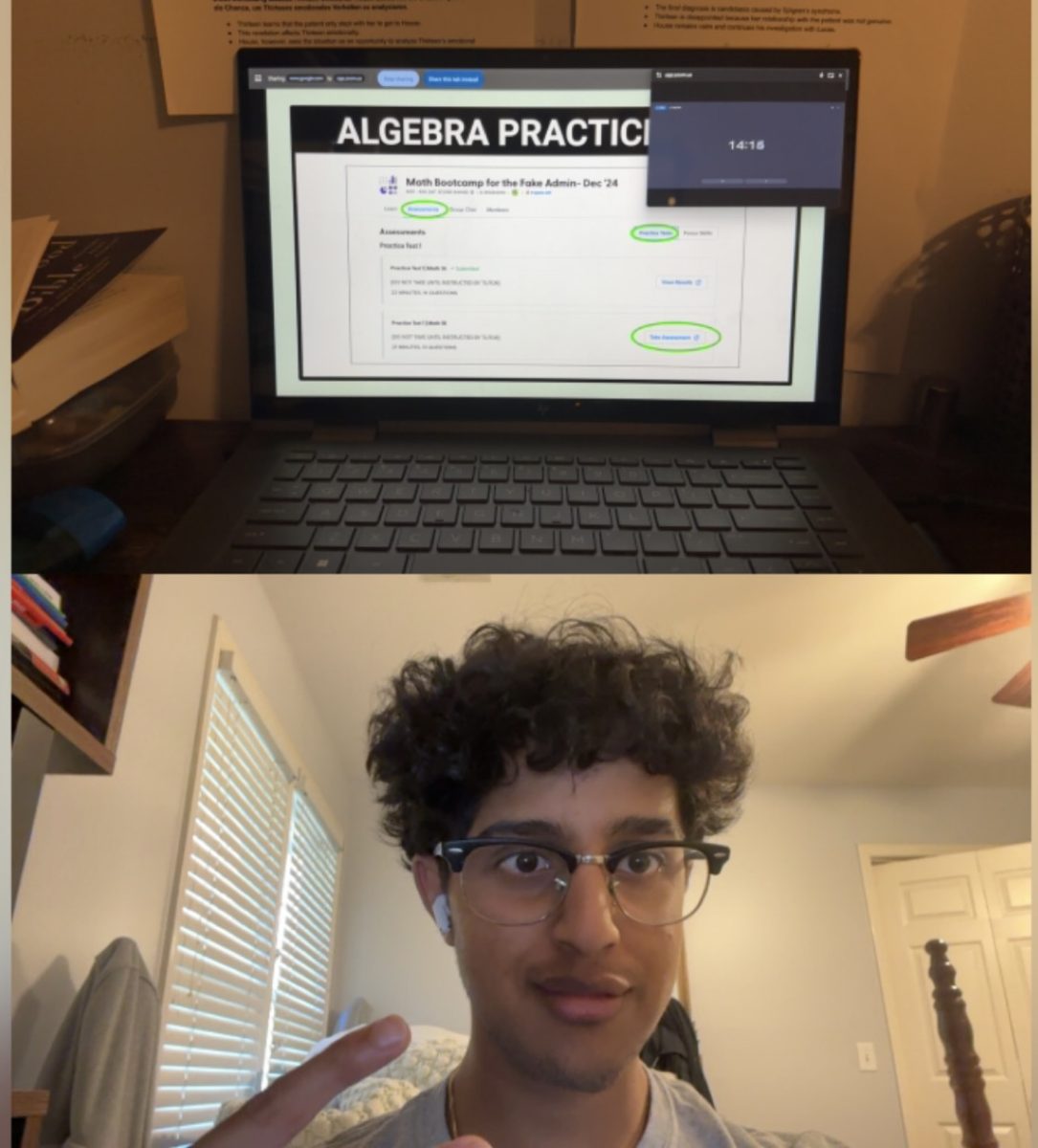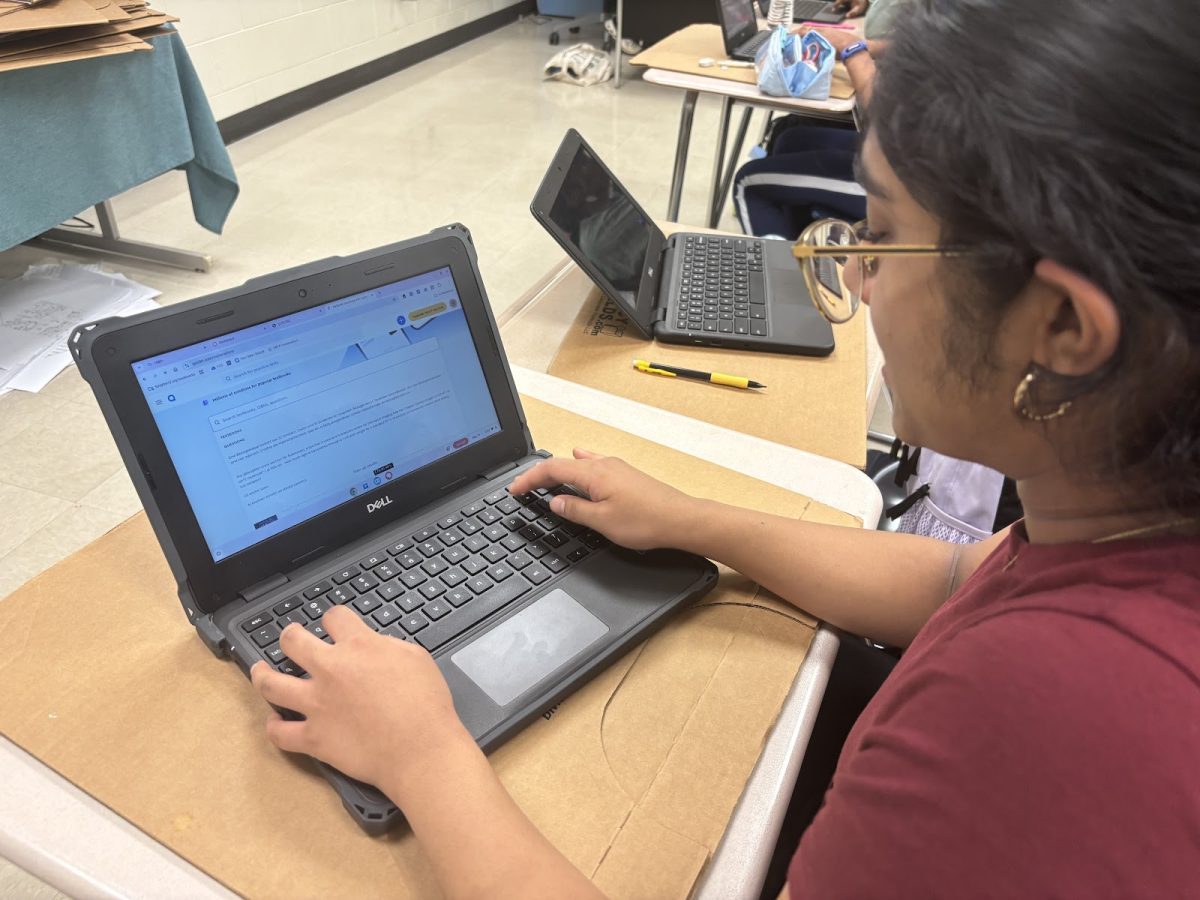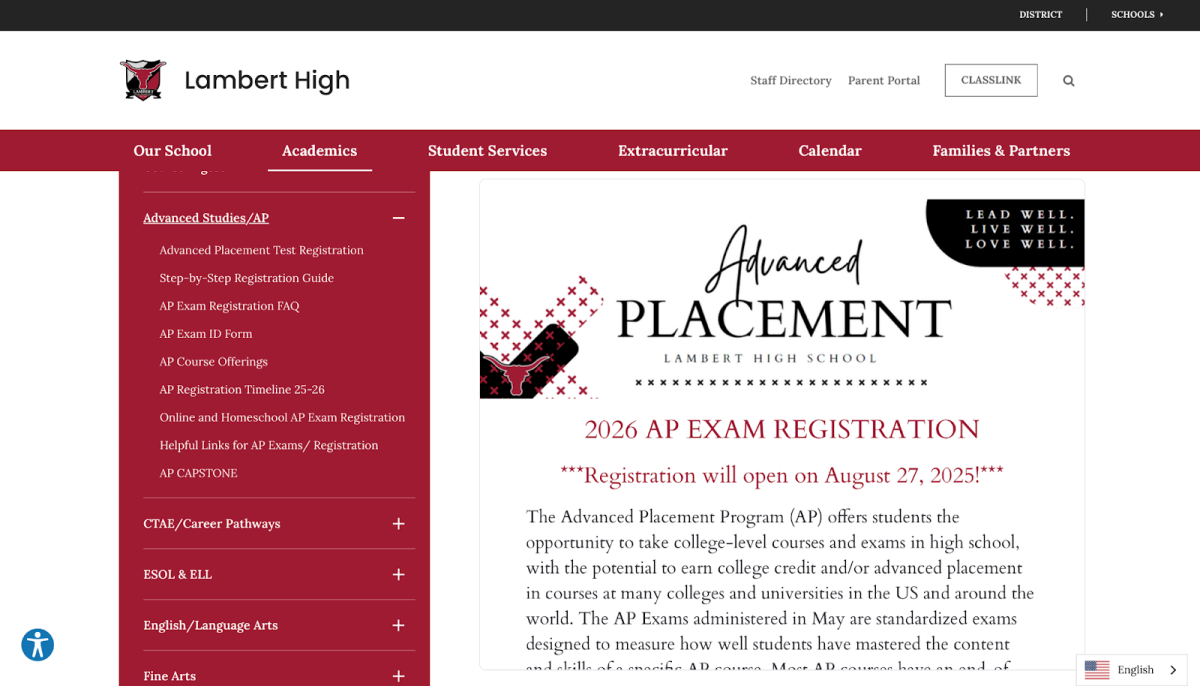The stock market is a popular method for building wealth, supported by a robust industry of financial advisors, investment platforms, and educational resources. Recently, more teenagers have shown interest in investing, motivated by the understanding that starting early can maximize their earnings through compounding, where returns generate additional returns. This strategy leads to greater wealth over time and equips young investors with essential skills for managing their financial futures.
However, investing is risky, especially for teens just starting to explore the unpredictable market. This has sparked a new debate among educators, parents and financial experts.
“Younger is better… if you look at the whole concept of compounding returns,” Mr. Ware, the accounting and business teacher at Lambert High, explained. “I never recommend for anybody of any age to invest in something they don’t understand.”
Learning about money management from a young age provides a solid foundation, covering essentials like budgeting, saving, investing and responsible spending. For example, teens might encounter budgeting when managing a part-time job income or saving up for something like a car. According to Mr. Ware, these skills are crucial in shaping an individual’s future financial behavior. Before teenagers dive into stock investments, they should first master principles like debt management and budgeting. These principles can help students understand and manage student loans and debt, which often become important before they even start investing.
“Investing should be on the list for some teens to learn about but it’s not number one on the list,” Mr. Ware said. “They should first learn just about making money and saving money.”
While managing and saving money is important, early investing is the next step for financially savvy teens. Starting young allows wealth to grow through compounding, where even small investments can become significant. For example, investing $100 at age 16 with a 7% annual return could grow to over $1,400 by age 50. A longer investment horizon also lets teens take on higher risks, potentially boosting returns. However, without proper research, those risks can quickly lead to losses instead of gains.
“Investing requires both knowledge and careful decision-making because you have to take risks,” Lambert sophomore Shreya Patel, who has been investing since middle school, said.
Patel’s experience highlights the importance of acquiring basic financial knowledge before diving into the market.
Recognizing the significance of financial literacy, Lambert offers a curriculum that combines theoretical knowledge with practical experience. The Career, Technical and Agricultural Education pathways for business accounting and financial services introduce these difficult concepts to students by exposing them to real-time financial simulations. These programs provide hands-on experiences, allowing students to explore market dynamics without risking their own capital.
It is also important to note that while investing offers many benefits, it requires some initial capital, which can be a barrier for many young people. Those facing financial challenges, like high student debt or limited savings, may find investing out of reach. This lack of resources makes it hard to seize opportunities in the stock market. It’s important to understand investing, but it’s equally crucial to build a solid financial foundation before diving into investment strategies.
Young investors should approach the stock market with caution, a solid understanding of personal finance and a strong financial footing. A clear grasp of financial basics is essential; without it, jumping into investments can lead to poor decisions. By staying informed and making smart financial choices early, students can pave the way for long-term success. This careful approach not only enhances their future wealth but also fosters a generation of financially responsible adults.















